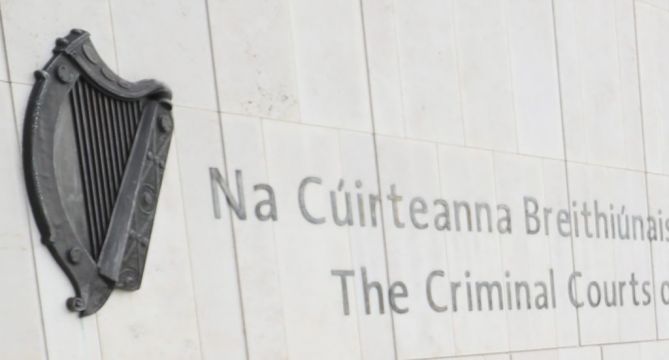A university administrator has received a suspended sentence for sexually assaulting his Airbnb guest after bringing the woman and her fiancée on historic pub tour in Dublin.
Brendan Leahy, 54, of Fenian Street, Dublin 2, appeared before Judge John Hughes at Dublin District Court on Wednesday.
He had pleaded guilty earlier to sexually assaulting the American tourist at Kehoe’s Pub, on St Anne Street, on a date in summer 2018.
Leahy held the woman from behind and repeatedly pushed his front into her after he offered to show her something in the pub.
Judge Hughes said, “There was some premeditation, I would call a devious element”.
Sentence
Leahy absented her from her partner, brought her around a screen and “took his opportunity then to self-gratify himself”, Judge Hughes said.
He imposed a three-month sentence but suspended it on condition Leahy completes a sex offenders education course, pays a €1,000 fine and gives another €1,000 in compensation to his victim.
He was also ordered not to provide Airbnb services any more.
The court heard the sexual assault had a “profound effect” on the victim.
Garda Ruth Finnegan told Judge Hughes the woman and her partner had been staying in Leahy’s spare bedroom which he was using for Airbnb.
He brought the couple on a tour of historic Dublin pubs.
Snug
Leahy, who got drunk, offered to show the woman the hatch area in the snug at Kehoe’s.
Garda Finnegan said that “when the injured party stepped inside the area the accused came behind her, grabbed her waist and thrust into her, four or five times”.
CCTV footage was shown in court. Garda Finnegan said the attack lasted six and a half seconds.
Later that night, the woman and her partner came to Pearse Street station and reported the incident. Gardai accompanied them to Leahy’s apartment, so they could get their belongings and move to a hotel.
The woman did not have to return to Ireland to give evidence because Leahy pleaded guilty. She provided a victim impact statement which was read out in court. The woman outlined effects on her mental health.
Flashbacks
She described how she was left in shock and suffered flashbacks leading to panic attacks. She had difficulty sleeping, being alone and found it hard it concentrate on her job.
The woman felt self-loathing and self-blame with the incident leading to intimacy difficulties with her husband.
She attends counselling and has been taking anti-anxiety medication.
She lost the ability to be independent and this had led to increased reliance on her family. She no longer wanted to travel internationally.
No recollection
Divorced father-of-two Leahy had no prior criminal convictions and co-operated with the investigation, the court heard. Two months later, he went to Pearse Street Garda station and explained he had no recollection of the incident because he was too drunk.
He identified himself on the video footage from the pub.
He could have faced a 12-month prison term and a €5,000 fine in the district court.
Remorseful
In a mitigation plea, defence solicitor Ruth Walsh said Leahy was remorseful and “absolutely devastated”. In pleading guilty, he had wanted to spare the woman further trauma of having to give evidence.
He had been using his spare room for Airbnb and had invited the couple out to show them historic Dublin pubs.
He was previously employed in the UK for the NHS but now worked in Ireland in a high profile education job at a prestigious third level facility.
In this role, he was the head of a facilities and services, over 400 staff members, the court heard. Leahy was also heavily involved in youth and adult rugby.
He had stopped providing Airbnb after the assault.
Deterrent

The court heard he was willing to engage in restorative justice programmes and would donate money to women’s aid organisations and charities to avoid a conviction.
Judge Hughes said there had to be a deterrent as he recorded a conviction.
He imposed the three-month sentence which was suspended on condition Leahy does not re-offend within the next 12 months and attends sex offending eduction as directed by the Probation Service.
Judge Hughes also explained that the compensation order was part of sentencing, but was not indicative of the level of damage the victim would have been entitled to in a civil court.







